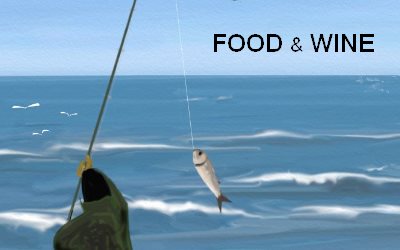Seafood for life
Seafood for life
Seafood can indeed be a part of a healthy and balanced diet, offering numerous health benefits.
Here are some ways in which seafood can contribute to a better life:
- Excellent Source of Protein: Seafood is a high-quality source of protein that contains all the essential amino acids required by the body.
Proteins are crucial for building and repairing tissues, supporting muscle growth, and maintaining overall health. - Essential Nutrients: Seafood is rich in essential nutrients such as omega-3 fatty acids, vitamins (including vitamin D and B-complex vitamins), minerals (like iodine, selenium, zinc, and iron), and trace elements.
- These nutrients are vital for brain function, cardiovascular health, immune system support, and overall well-being.
- Heart Health: Many types of seafood, especially fatty fish like salmon, mackerel, and trout, are rich in omega-3 fatty acids.
- These healthy fats have been associated with reducing the risk of heart disease, lowering blood pressure, decreasing inflammation, and improving overall heart health.
- Brain Function: Omega-3 fatty acids found in seafood, particularly docosahexaenoic acid (DHA),
play a crucial role in brain development and function.
Regular consumption of seafood
- Regular consumption of seafood, especially during pregnancy and early childhood, has been linked to improved cognitive development and a reduced risk of cognitive decline in older adults.
- Weight Management: Seafood is generally lower in calories and saturated fats compared to many other protein sources,
making it a good option for those aiming to maintain a healthy weight or lose weight.
It provides a satisfying and nutrient-dense alternative to higher-calorie foods. - Bone Health: Certain types of seafood, like sardines and salmon, are excellent sources of vitamin D and calcium, which are important for maintaining strong and healthy bones. Including seafood in your diet can help support bone health and reduce the risk of conditions like osteoporosis.
- Variety and Culinary Enjoyment: Seafood offers a wide variety of flavors, textures, and cooking methods,
making it a versatile and enjoyable addition to your meals. - Incorporating different types of seafood into your diet can expand your culinary horizons and add excitement to your meals.
However, it is essential to be mindful of sustainable seafood choices and potential environmental concerns. Overfishing and destructive fishing practices can harm marine ecosystems. When purchasing seafood, look for sustainable options, such as those certified by organizations like the Marine Stewardship Council (MSC) or Aquaculture Stewardship Council (ASC).
Furthermore, if you have specific dietary restrictions, allergies, or health conditions, it's always best to consult with a healthcare professional or registered dietitian to ensure that seafood aligns with your individual needs and preferences.






